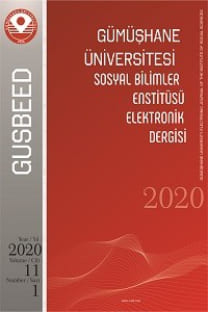Orta Çağ İktisat Zihniyetinin Kazanç Maksatlı Ticaret Etkinliğine Karşı Tutumu
Orta Çağ kilisesinin ekonomik düşünürleri, tek bir sesle, ticareti, ruhu tehlikeye atan endişe verici bir uğraşı olarak kınamışlardır. Orta Çağ Avrupasının ekonomik düşünürlerinin tamamı, kazanç arzusu olmasaydı ticaret yapma gereksiniminin olmayacağı, bencillik ve tamahkarlık duyguları da olmasaydı kâr etme tutkusunun da olmayacağı görüşü içindeydiler. Açgözlülük ve para hırsı ticaretin tamamı için zorunlu bir temel olduğu için, ticaret günahla yoğrulmuştu. Kilise babaları, ticarette bir kimsenin kazancını daima diğerinin bu alışverişte uğradığı zararı üzerine kurdukları için, ticaretin beraberinde getirdiği yalan ile sahtekarlıklara kendini kaptırarak ayartılması nedeniyle, parayla yapılan her alış verişi çok tehlikeli bir uğraşı olarak görmüşlerdir. Kilise babalarının temel ekonomik öğretileri, bir tüccarın alış fiyatının çok üzerindeki bir bedelle bir ürünü satmamaları, ancak o ürünü çok küçük bir kâr ekleyip satabilecekleri bir fiyatla satın almalarıdır. Bu tanımlamanın önemi, şayet satıcının sunduğu hizmetler yoluyla malların niteliklerinde bir gelişme sağlanırsa veya daha değerli bir hale getirilirse, alış fiyatının üzerinde yapılan satışın da alışın da adaletsiz olmayacağı fikrinden gelmektedir. Böylesine bir geliştirme, daima işgücünün kullanılması ya da malın bir yerden başka bir yere taşınması gibi farklı tarzlarda gerçekleşebileceği için, karşılığı ücretle alınan bir uğraşı olarak da adlandırılabilir. Bu nedenle, kilise hukuku açısından ticaretin özü, malların bir kazanç uğruna alınmasına meydan vermeyecek yükseklikte fakat değişmeyen bir fiyattan satılmasının sağlanılmasını gerektirmektedir.
Anahtar Kelimeler:
Ticaret, Tamahkârlık, Tüccar, Orta Çağ Ekonomik Düşüncesi
The Medieval economic thinkers of the church had with one voice condemned trade as being an occupation fraught with danger to the soul. All of them argued that there would be no need of trade if there were no desire for gain, and that there would be no ambition for gain if man were not avaricious feelings. Trade was sinful because avarice was the necessary basis of all trade. The fathers of church thought that one man’s gain in trading must always be another’s loss; and that, in any event, trade was a dangerous occupation since it offered so many temptations to fraud to the merchant. Their main economic teaching that, not every one that sells at a higher price than he bought is a trader, but only he who buys that he may sell at a profit. The importence of this definition, if the goods have been in any way improved or rendered more valuable by the services of the seller, in this sense neither buying nor selling with higher price unjust. Such improvement was always reckoned as the result of employing labour of one kind or another by transporting, and therefore entitled to remuneration. So the essence of trade in the canonic sense was selling the commodities unchanged at a higher price than that at which it had been bought for the sake of gain.
Keywords:
Trade, Avarice, Merchant, Medieval Economic Thought,
___
Adelson H.L. (1962). Medieval Commerce PrincetonAristoteles (2002). Politika, İstanbul
Bentmann R. (1979). Churches of the Middle Ages, London
Braudel F. (2000). Maddi Uygarlık Ekonomi ve Kapitalizm (1-2-3) Ankara
Challaye F. (1969). Mülkiyetin Tarihi, İstanbul
Clarence S. (1975). Medieval Law Teachers and writers, Ottowa
De Roover R. (1948). Money, Banking and Credit in Mediaeval Bruges,Cambridge Herlihy B. (1968). Medieval Culture and Society, London
Hodgett, G. (1972). A social and economic history of medieval Europe, London
Hunt E.S. (2004). A History Business in Medieval Europe 1200-1550, New York
Lowry T.S. (1998). Ancient and medieval economic ideas and concepts of social justice, Leiden, New York
O'Brien G. (1967). An Essay on Medieval Economic Teaching, New York
Pirenne H. (1982). Orta Çağ Kentleri, İstanbul
Postan M.M. (1981). Medieval Trade and Finance, London
Pounds N.J. (1974). An economic history of medieval Europe, New York
Robinson S. (1915). Slavery :as recognized Mosaic Civil Law and Canonic Law in christian church; recognized also and allowed in all Oriental religions, Toronto
Ullman W. (1969). The Medieval Idea of Law New York-1969
Weber M. (1984). The Protestant Ethic And The Spirit of Capitalism, London
“ “ (1950). General Economic History, New York
Wood D. (2005). Medieval Economic Thought, New York
- ISSN: 1309-7423
- Yayın Aralığı: Yılda 3 Sayı
- Yayıncı: Gümüşhane Üniversitesi
Sayıdaki Diğer Makaleler
İş Hukuku Kapsamında Tarımda Çalışanlar
Tip'ler İnsanı“Modernleşmenin Benzeşen Bireyleri”
Türkiye’de Ekonomik Büyüme ve Turizm İlişkisi
Yapılandırmacı Sınıf Öğrenme Ortamı Algısı
Sinan SCHREGLMAN, Fadime MENGİ
Düzce Yöresi Şehir Tarihi Çalışmaları Üskübü (Konuralp) ve Akçakoca Örneği (Kitap Tanıtımı)
TİP’LER İNSANI “MODERNLEŞMENİN BENZEŞEN BİREYLERİ”
Abbasiler Hilafetinin Tenezzülü ve Parçalanmasına Dair
Muhammet KEMALOĞLU, Ebülfez ELÇİBEY
